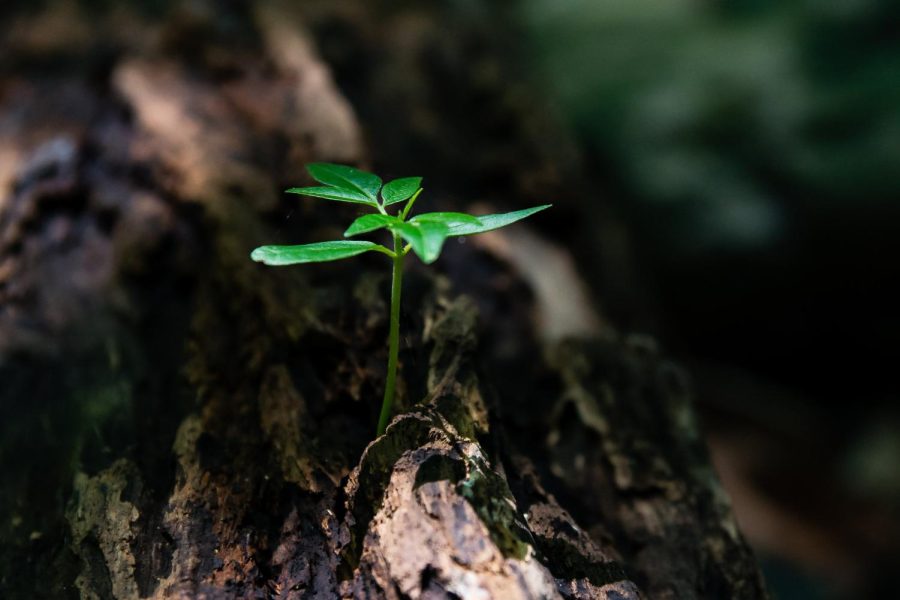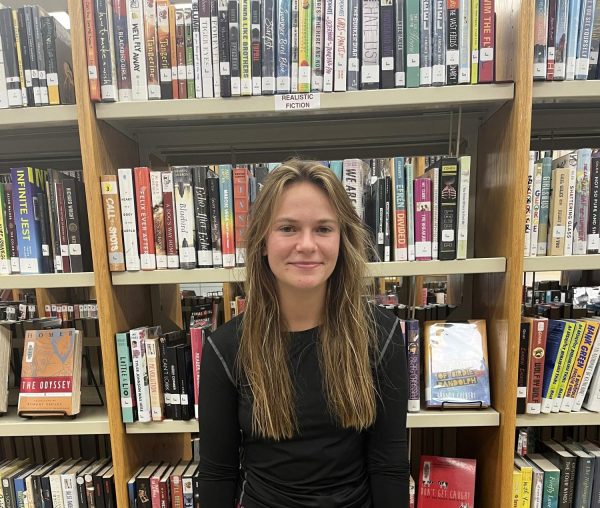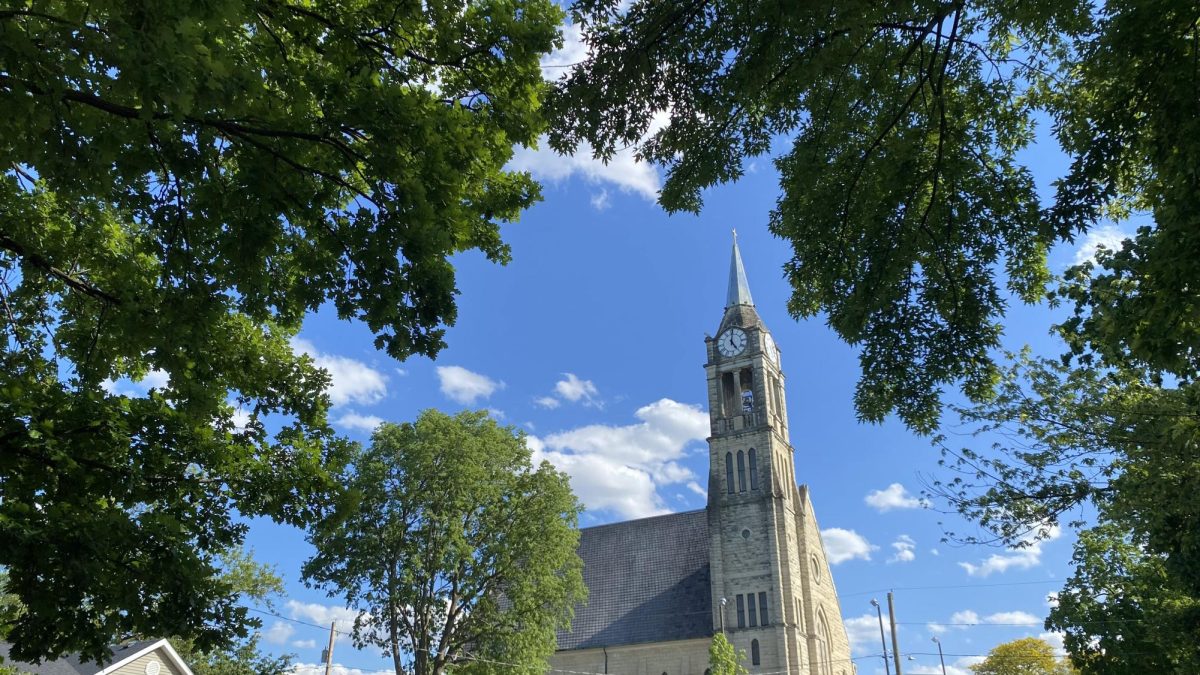What I’ve Learned This Year
May 31, 2023
I’m a big believer in growth. I think making mistakes and learning from them is what makes life worth living. So, in honor of my Junior Year, one filled with the most personal growth I’ve yet to experience, here are 3 things I’ve learned and wish to carry with me as I become a senior.
#1
The love and admiration I have for myself are much more important to my well-being than the validation I seek from others. See my article, “Not Your Typical Love Story.”
Thing 1:
I don’t need the validation of others to love who I am.
#2
Having hard conversations in life that challenge my beliefs and question my thinking is the most difficult part of being a person for me. I am an extremely logical person who loves to create detailed explanations and reasons for things I believe, and I find great satisfaction in convincing people with a well-developed message that I make. But trying to convince someone of something and truly opening my mind to the topics at hand are two very different approaches to a conversation. And the latter has the potential to yield personal growth, while the former breeds frustration and stagnation.
Thing 2:
It’s really easy to convince yourself that everyone around you is wrong when they say something you don’t agree with or want to hear, but taking a beat and questioning your own beliefs or understanding of something is the only real way to acknowledge the possibility of change and potentially work towards it.
And finally, #3
Last summer, I set a goal with my therapist. I wanted to be vulnerable with others. What I didn’t know at the time was that I had no idea what vulnerability looked like for me personally, let alone how to go about practicing it.
I spent several nights this school year lamenting about my inability to “open up,” to let people know what’s going on inside of my brain. I felt like I was hiding parts of myself from my closest friends, and I didn’t even know why.
Vulnerability is a vague idea. I never really knew what it looked like for me because I could already have conversations about traumatic experiences and share my ideas and thoughts with relative ease. These ideas were the base that I had built my understanding of how being vulnerable should look like on, so I couldn’t understand how no matter how many times I had conversations where I thought I “opened up” to others, I didn’t feel any more connected with the people around me. I felt like I was destined to remain isolated because I couldn’t figure it out.
At the same time, I was battling with feeling like I was impersonal and couldn’t connect with others because when I spoke or texted people, I felt like I sounded like a precisely coded robot. I felt like I could only say exactly what I wanted to say, and it seemed calculated to me. And, don’t get me wrong, I really love that I have the ability to do that: it allows me to write articulately and clearly. It allows me to communicate exactly what I’m thinking. However, it also puts up this wall in my head. It fences me off from connecting with people because it makes me feel like a robot at times, depicting things that have happened in my life like a reporter instead of a participant. Communicating like this lacks that personal touch, so it has caused me to feel isolated amongst many of the people I love most.
So, when I discovered that I was like this because I mostly use my logical brain, I talked to my therapist about it, and then I came to the decision that I really wanted to work on tapping into my emotional side. I still didn’t really know how to be honest. But, I figured that if I could do it, it’d be my first step to vulnerability.
Over the next few months, it came slow. If I’m being completely truthful here, it came slow in part because I started to like someone. And, when I like someone, I put a lot of energy into making sure that I’m not cultivating my image because I don’t want to feel like I’m manipulating them into liking me more. The effect, though, is that I start hiding parts of myself from others, especially if the parts I share will make me look good. It sounds counterintuitive, I know, but I don’t let myself share things until I know for certain that my intention isn’t to impress them or get them to like me more. This, in turn, stunts my relational development a lot of the time, but still, I started hiding parts of myself from my friends. I started shoving them deep inside. I hid my ambitions, my goals, my love for learning, and anything that I thought would help me cultivate my image.
And, over the last 5 months, I’ve been struggling with religion and God. I am surrounded by religion and God on a day-to-day basis. I am heavily involved in the church community, and a lot of my closest friends come from that community, so naturally, I think about it a lot. But I’ve always been interested in religion and God, anyway. I find it fascinating, and I love diving deep into the intricacies of it. In the last 5 months, though, I’ve sought actual books and detailed information about Christianity. The couple of books that I’ve read so far highlight both the beautiful parts of religion and its undeniable faults. The lessons to be learned and the shortcomings to be worked on. I’ve started to really think about it all, and I’ve been searching for answers to my questions more adamantly than ever. But, I’ve gotten caught up in the fact that I don’t entirely identify with the beliefs and ideas that a lot of my friends and the people in my community have. I’ve been searching for my place amongst the beliefs, and it’s been a nonstop game of tug-of-war that just doesn’t seem to end, ever.
So, in my struggle, I’ve had many conversations with my friends about God, about religion, and about faith. And each time, I’ve been weary to not reveal too much about what exactly I do and don’t believe, to not be too different because I was scared of the rejection. Of the looks that would tell me that I don’t belong and need to leave.
And it came to a breaking point. After several months of walking the line and I couldn’t take it anymore because it felt like lying. It felt like more hiding and more cultivation. I just needed everything to be out on the table. I needed to be free of the image that I was cultivating because it didn’t feel authentic. It didn’t feel like me, and I so desperately wanted to feel like me again. And so, one night, not too long ago, I had another long discussion about God with my friends. It was fascinating, but more importantly, It gave me a space to put it all out there. It gave me a space to explain how I felt and to let go of the image I had so meticulously crafted. I told them my honest, deepest desires in life and how they are influenced and inspired by Jesus but not necessarily connected and dependent on God. I broke down and let go of the control that I wanted over who I was perceived to be, and I was finally able to be me.
I woke up the next morning feeling relieved. I spent the rest of the week, the next two weeks, feeling like I could be my whole self around the people I love most because I let go, stopped hiding, and stopped controlling. I felt like the boundaries were lifted, and could just be me.
I thought about the conversation and the subsequent feelings involved for several weeks. I pondered the state of peace that I had been in since, and I slowly realized that I had been vulnerable in that discussion. Truly vulnerable. And then I spent more time searching for how exactly I had been vulnerable, and, eventually, I came to the conclusion that my vulnerability came from letting go of the control, from saying everything I felt like I had to say and not hiding parts of myself because I was scared of how they would be perceived. I had let go of cultivating who I was perceived to be, and it felt like I was finally able to be myself and overcome that valley that had always acted as a divide between me and my closest friends.
And so, my third thing is a little bit loaded, but I learned that vulnerability looks different for everyone. It’s not going to be the same for me as it is for others. What makes me feel vulnerable is extremely different from what makes others feel vulnerable, so attempting to follow some type of vulnerability “rule” or “code” as I had at the beginning of the year is a fruitless endeavor. Vulnerability is personal. And, on a personal level, I learned that vulnerability for me is releasing some of the control that I want in my life and not hiding parts of myself that I love because I’m scared of how I will be perceived by others.
Thing 3:
Vulnerability is personal and it takes time to figure out how to be vulnerable and what that looks like for you, specifically.
I’ve learned a lot these last 11 months, but, as the year itself comes to a close, I want to keep the book of my life open. I want to keep filling the empty pages with what I have learned and what I will learn in due time, and I sincerely hope that you will keep filling your pages, too.





